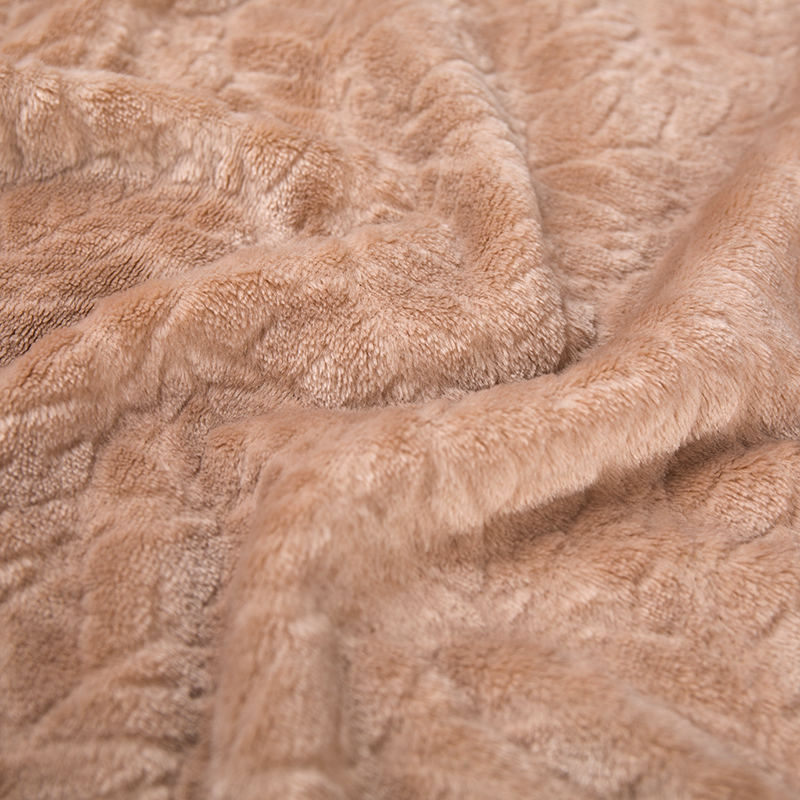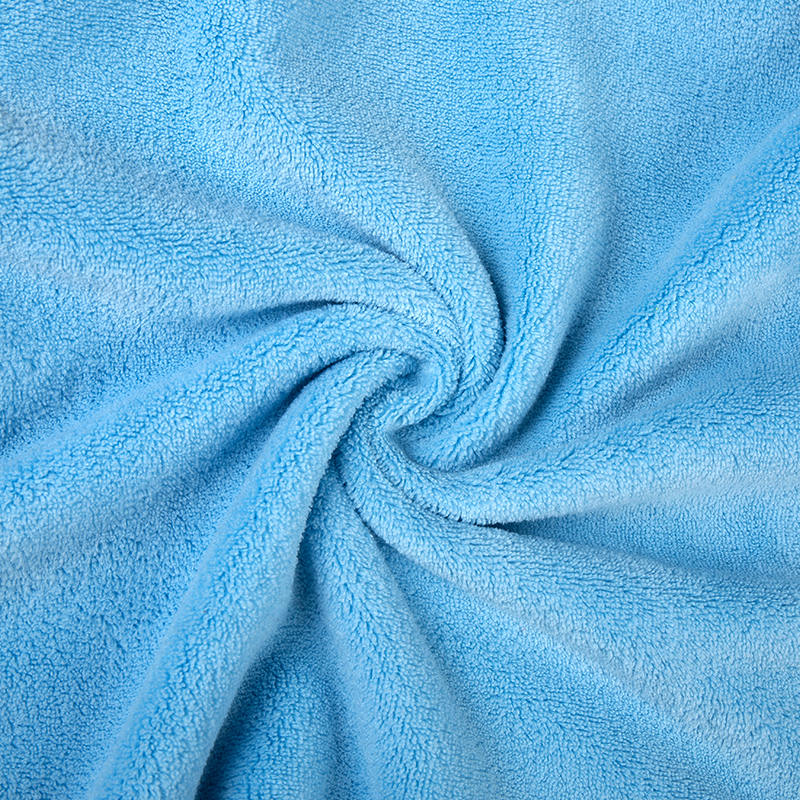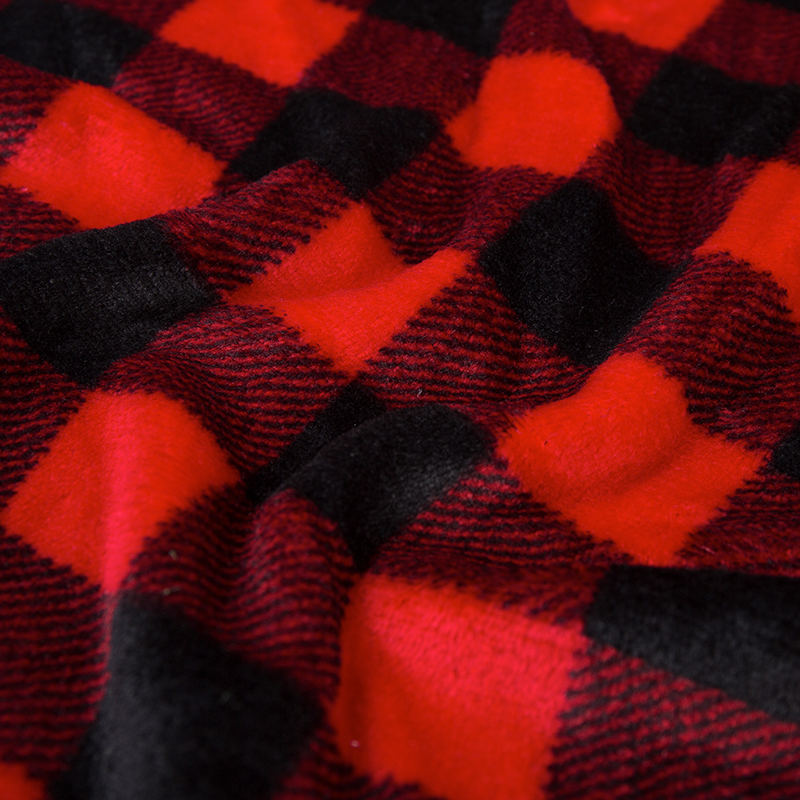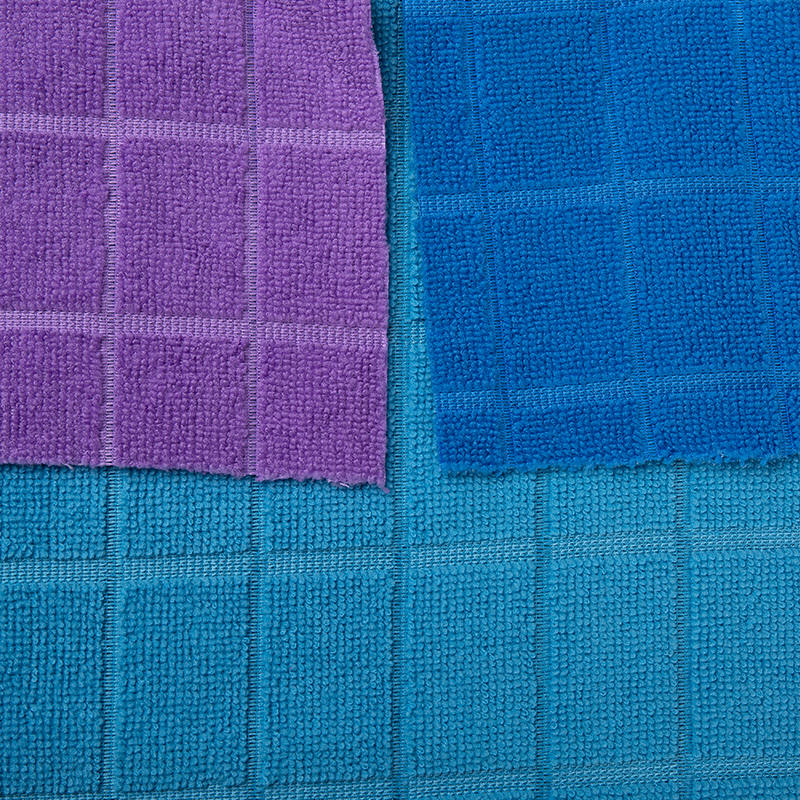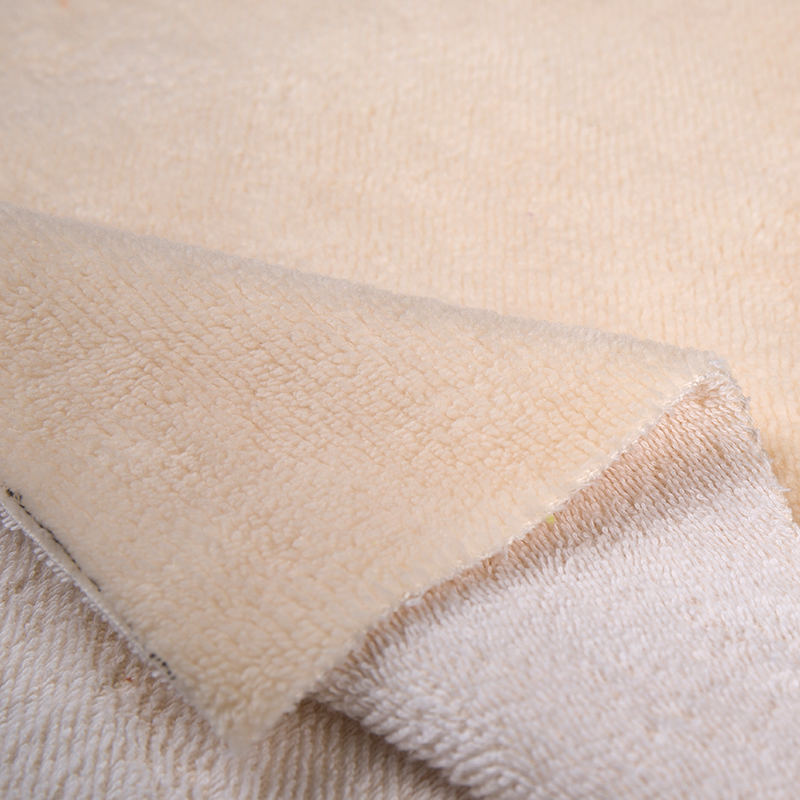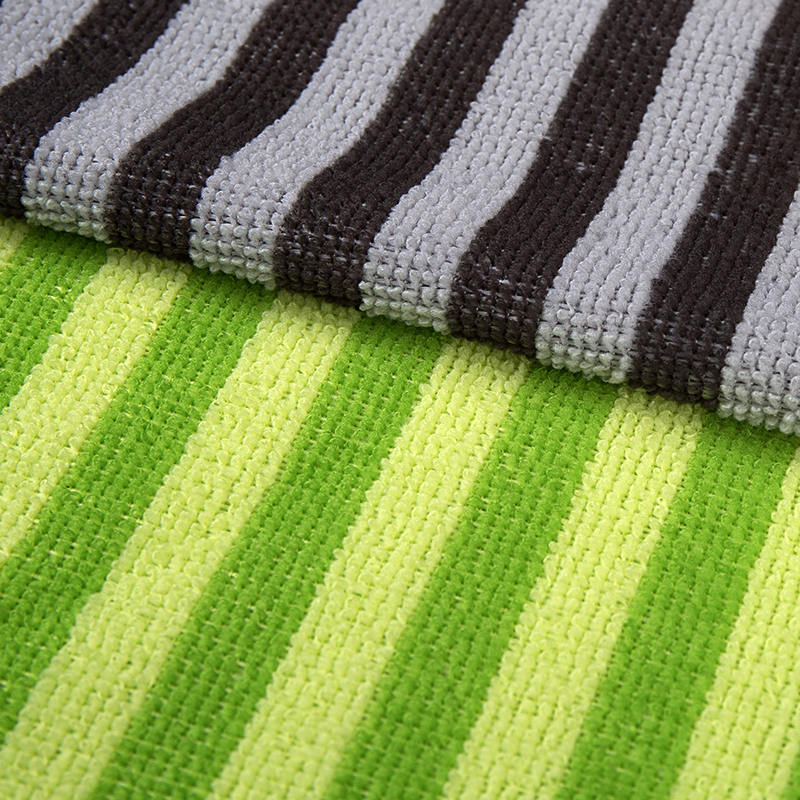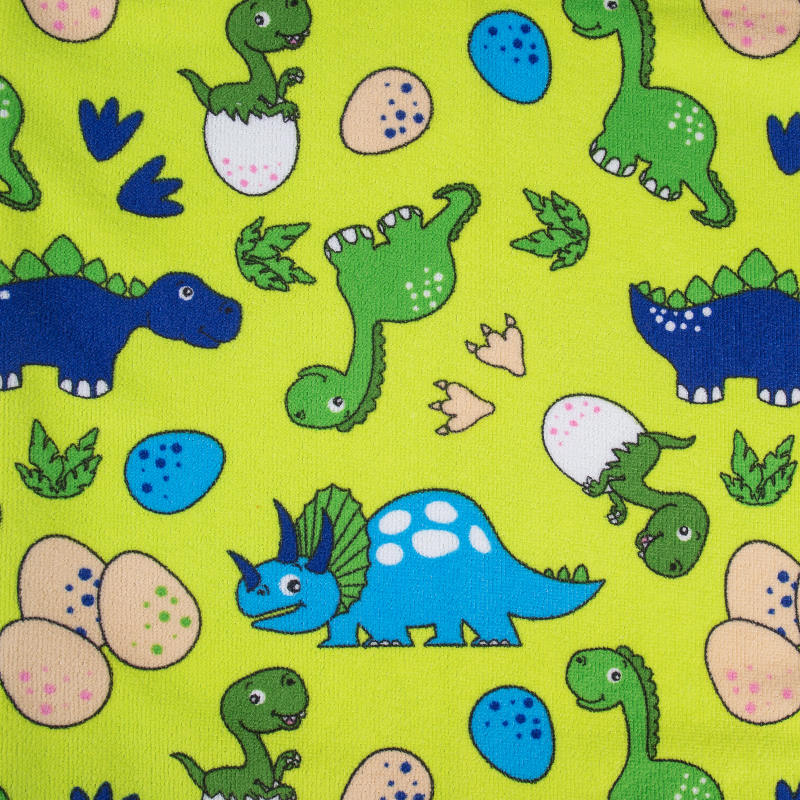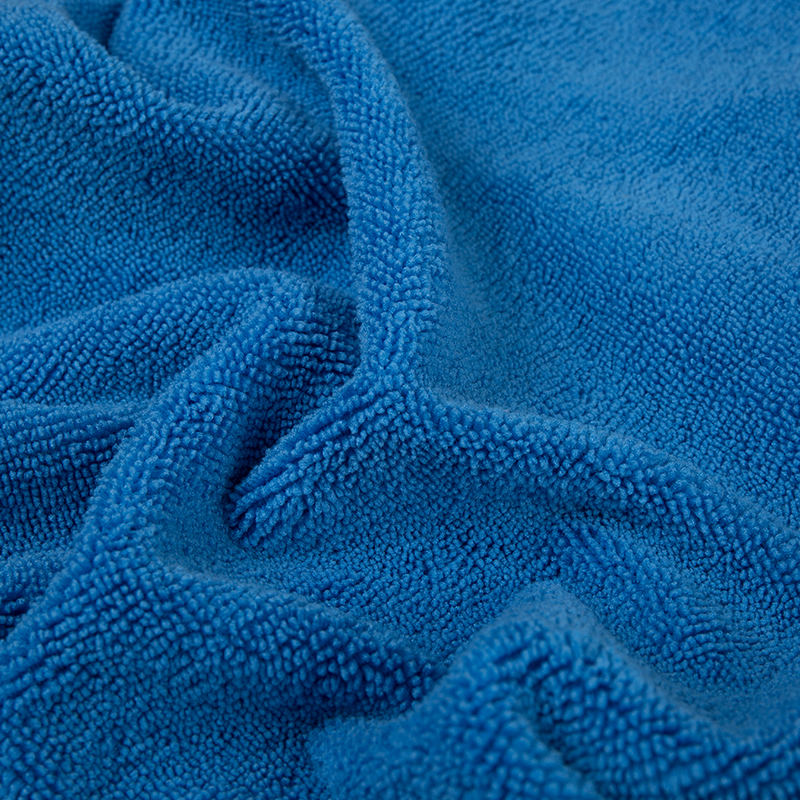Raw material selection: scientific optimization of polyester and cotton ratio
During the production process of Polycotton Terry Cloth Factory, the selection of raw materials directly affects the performance and durability of the final product. Polyester and cotton wool cloth is usually blended with polyester fiber (Polyester) and cotton fiber (Cotton). Common ratios include 65% cotton + 35% polyester, 50% cotton + 50% polyester, etc. Cotton fibers give the fabric hygroscopic and skin-friendly, while polyester enhances its wrinkle resistance and wear resistance.
The high-quality Polycotton Terry Cloth Factory will strictly screen raw material suppliers to ensure uniform length of cotton fibers, free of impurities, and meet the strength of polyester wires. Some high-end factories will also use organic cotton or recycled polyester to meet the needs of the environmentally friendly market. Before entering the warehouse, raw materials must undergo multiple tests such as moisture content, fiber fineness, and color fastness to ensure compliance with production standards.
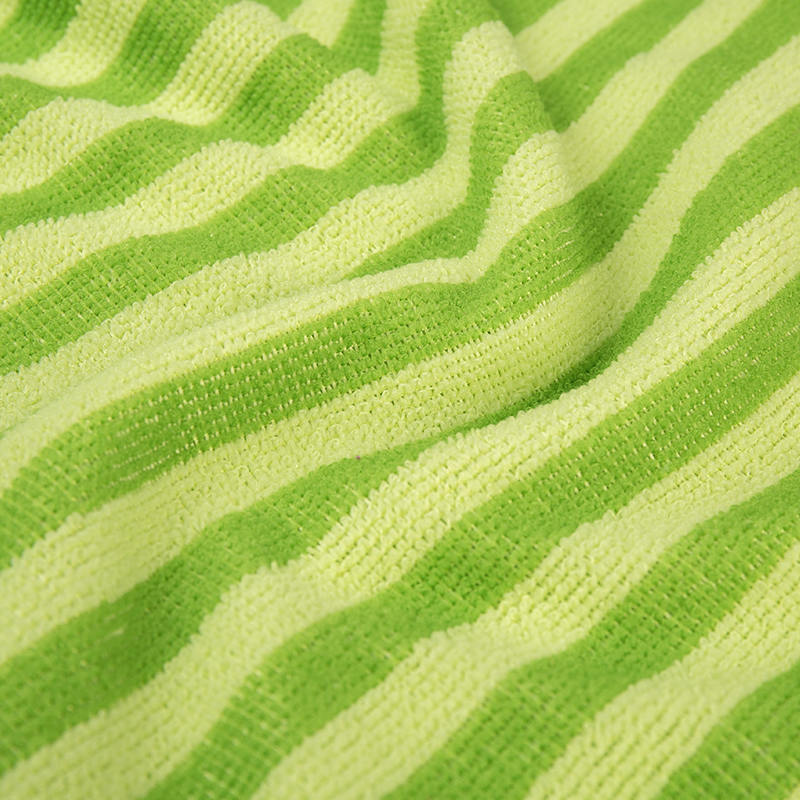
Spinning process: Ensure yarn uniformity and strength
The quality of polyester-cotton blended yarns directly affects the ultimate feel and durability of the terry cloth. In the spinning workshop of Polycotton Terry Cloth Factory, cotton fibers and polyester fibers need to go through multiple processes such as loosening, combing, stripping, roving, and fine yarn to ensure that the yarn is uniform and has no knots and meets the strength.
Due to the different physical characteristics of polyester and cotton, the temperature and humidity need to be accurately controlled during blending to avoid static interference. The advanced Polycotton Terry Cloth Factory will use tight spinning or serro spinning technology to reduce yarn and hair and improve weaving efficiency. After the yarn is completed, twist tests and strength tests are required to ensure that it meets subsequent weaving requirements.
Weaving technology: precise control of terry structure
The core feature of the terry cloth is its unique terry structure, which directly affects the water absorption and fluffiness of the fabric. In the weaving process of the Polycotton Terry Cloth Factory, a double-sided terry machine or warp knitting machine is usually used to control the height and density of the terry by adjusting the knitting needle density and yarn tension.
The high-quality Polycott Terry Cloth requires uniform terry loops and are not easy to fall off, so the factory needs to monitor the running status of the loom in real time to avoid breaking yarn or jumping needles. Some high-end products will also use jacquard technology to make the terry cloth have a richer texture and three-dimensional sense. After the weaving is completed, the grey fabric needs to undergo preliminary inspection to remove the defective parts to ensure the stable quality of the fabric in the finishing process after entering.
Last finishing technology: improve feel and functionality
The polyester and cotton wool cloth that has just been removed from the loom is rough and needs a series of finishing processes to achieve the softness and functionality required by the market. At Polycotton Terry Cloth Factory, post-organization usually includes steps such as desizing, bleaching, dyeing, softening, drying, etc.
Desorption can remove residual slurry during weaving, and bleaching will make the grey cloth evenly color. The dyeing process requires strict control of temperature and time to ensure that the color fastness meets the standards and avoid fading. Soft treatment is the key to improving the feel. The factory will use bioenzyme washing or silicone oil to make the fabric more skin-friendly. Some Polycotton Terry Cloths will also carry out special treatments such as antibacterial and antistatic to meet the high-end market demands such as medical and sports.
Strict quality inspection: Ensure the finished product meets international standards
At Polycotton Terry Cloth Factory, quality control runs through every step of production. The finished product needs to undergo a number of strict inspections before leaving the factory, including:
- Physical performance test: such as weight, thickness, tensile strength, wear resistance, etc.;
- Color fastness test: including color stability under conditions such as washing, friction, and lighting;
- Absorption Test: Ensure that the terry cloth absorbs water quickly and remains fluffy;
- Environmental testing: For example, formaldehyde content, pH value, azo dyes, etc., ensure compliance with international standards such as OEKO-TEX®, REACH, etc.
Only the Polycott Terry Cloth that passes all inspections can be packaged out of the factory, ensuring that every batch of products received by customers has stable and high quality.
Future Trends: Intelligence and Sustainable Development
With the technological advancement of the textile industry, Polycott Terry Cloth Factory is gradually transforming to intelligent and green production. Some leading factories have introduced automated weaving equipment, AI quality inspection systems and ERP production management systems to improve efficiency and reduce human errors.
In terms of sustainable development, more and more factories are beginning to adopt recycled polyester, organic cotton, and optimize water treatment and energy recovery systems to reduce carbon emissions. In the future, the market demand for Polycotton Terry Cloth will continue to grow, and factories with high technical content and environmental certification will have a more competitive advantage.
The production of polyester-cotton terry loop cloth is a process involving multiple precision processes. Polycotton Terry Cloth Factory ensures that every meter of fabric meets high-end market demand through strict raw material screening, advanced spinning and weaving technology, fine post-tidying technology and comprehensive quality inspection. As consumers' requirements for comfort and environmental protection continue to increase, factories with core technology and quality control capabilities will occupy a more important position in the industry.
For brands and buyers, choosing a Polycott Terry Cloth Factory with mature technology and stable quality is the key to ensuring product competitiveness. In the future, intelligence and sustainable development will become the mainstream of the industry, and high-quality polyester and cotton wool cloth will still occupy an important position in the global textile market.

 English
English Español
Español 中文简体
中文简体